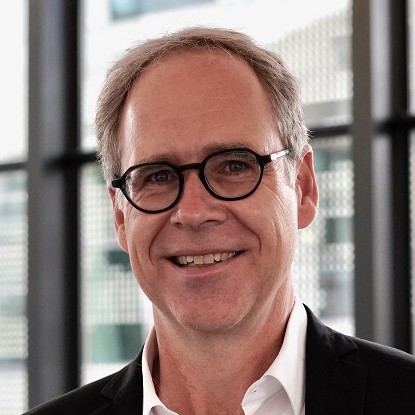Dr. Xu Wen
My field of research is fascinating. The best way to explain it to non-specialists in a comprehensible manner is:
Combustion is still the most important energy conversion technology worldwide. My research is about the development of high-fidelity numerical models for predicting the gas-phase and multiphase combustion (as it occurs in technical systems) using high-performance computers. This leads to a better understanding of the underlying physics. The ultimate goal of the research is to improve the combustion efficiency and to reduce the pollutant emissions.
What research questions are you currently working on?
My research focus is to understand the fine-scale interaction of the (turbulent) flow field and chemical reactions. Based on this, I develop predictive models that can be used in the simulation of real combustion systems. One specific topic is to understand how this fine-scale interaction is influenced by alternative/regenerative fuels such as H2, which is often produced from wind or solar power. Using such fuels will be key in the transformation to a sustainable energy system. So, you could say that my research is closely connected to the German “Energiewende”.
I’ve chosen the TU Darmstadt because of…
the world-wide recognized research of my host, Professor Christian Hasse, and his group in the field of combustion modeling. Professor Hasse has worked on the simulation of laminar and turbulent reacting flows and flames for many years, and his group has developed state-of-the-art high-fidelity flamelet models for complicated combustion systems. Further, the close collaboration between Professor Hasse's group and Professor Dreizler's group also facilitates the development of my academic career.
My most important success in research to date is…
to develop several flow solvers for gas-phase and multiphase combustion in the context of direct numerical simulation and large-eddy simulation (LES). The numerical models that have been developed include: (1) two-mixture-fraction flamelet model; (2) coupled premixed-flame-based flamelet model and diffusion-flame-based flamelet model; (3) three-mixture-fraction flamelet model; (4) artificially thickened flame model; and (5) velocity-scalar joint filtered density function sub-grid scale model.
Will the results of your research have a concrete impact on our everyday lives either now or at some later date?
Yes, as mentioned above, the ultimate goal is to improve combustion efficiency and reduce pollutant emissions. As one example, China will rely on combustion for many years to come and we as researchers should provide methods and tools that help industry to design better technical systems. This is a fascinating opportunity for research to really have an impact. Making combustion sustainable by e.g. using alternative and regenerative fuels is a big challenge and a chance.
Questionnaire for the host
Guest of: Prof. Dr.-Ing. Christian Hasse
Department: Simulation of Reactive Thermo-Fluid Systems, Mechanical Engineering
What would you say you appreciate most about your guest or what made the most favourable impression on you…
I am very impressed by Dr. Wen’s dedication to research and his capability to analyze the fine details of combustion. Through this, we can achieve a new level of understanding of the underlying physical and chemical processes. Using the experience and knowledge from his previous research, he now extends his methods and tools to new systems.
You, your team and the TU Darmstadt benefit from your guest’s…
research. He interacts with other PhD students and post-docs in several fundamental research projects, e.g. the DFG-funded collaborative research center SFB/TRR 129. This interaction is really of mutual benefit and provides added value for both sides.







